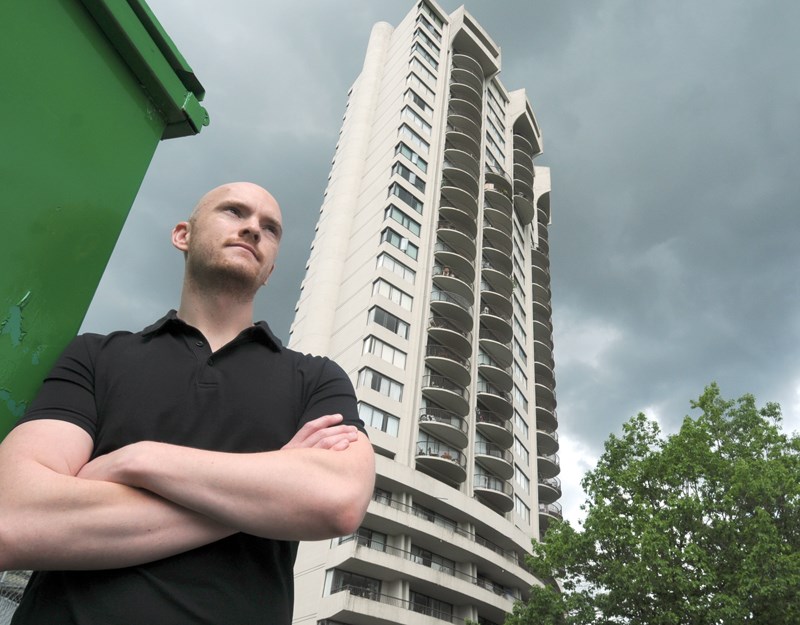The North Shore’s municipalities are among the very worst in B.C. when it comes to home prices becoming detached from the local economy.
That’s one of the conclusions drawn from a new report by Vancity that finds the suburbs are no longer cheaper alternatives to buying a home in Vancouver proper.
While the overall affordability of residential properties sold in Vancouver worsened by just three per cent over the last year, affordability dropped by 38 per cent in the District of North Vancouver – the biggest drop among the 30 municipalities Vancity tracked over a one-year period ending on Feb, 28.
To measure affordability, the credit union used gross debt service ratio – the percentage of the census region’s median household’s gross income required to cover mortgage costs, property taxes and maintenance (such as strata fees and heating) compared to the median price of a home.
West Vancouver had the highest GDS by a wide margin, where someone making the median income would have to pay 191.8 per cent of their earnings to cover the costs of a median-priced home of $2,821,500. The District of North Vancouver was third overall with 92.5 per cent. The City of North Vancouver landed 11th on the list, in part because of the number of condo units there.
Chris Kaufman and his partner know all too well how almost impenetrable the North Shore market currently is. Despite having a down payment, preapproval for a mortgage and decent white-collar salaries, they’ve been beaten out of bidding wars six times in four months.
“It’s just been a bit frustrating because we’ve been watching prices go through a bit of a mini-boom even in the three or four months we’ve been looking. Buildings that were obtainable to us in February are suddenly unobtainable by May as the prices have gone up $20,000 to $30,000 in some cases,” he said. “We often get scooped out by offers with no conditions or financing. They’re coming in with equity or they’re cash buyers.”
Kaufman said he’d like to see more intervention from senior levels of government, even though it may put existing homeowners’ equity in jeopardy.
“I do feel that it is a bit out of control and the value of these properties does not match what they’re selling for, and at some point that’s going to lead to a bigger problem, I think,” he said.
District Mayor Richard Walton said Vancity’s results were “not good news for anyone,” except for maybe those seeing their equity balloon.
But, he added, the rankings are skewed by quirks of history and political geography. When the city was carved out of the district in 1907, it took the “urban core” for North Vancouver with it, and much of the land where smaller, relatively more affordable units are now.
“Even in an amalgamated community you would find there would probably be at least as much density there. The statistics would have evened out more for the entire community,” he said.
Still, Walton said he believes there is a new trend of West Vancouverites cashing out and moving to the tonier neighbourhoods east of the Capilano River like Upper Capilano and Delbrook where they can afford the high home prices and still pocket a couple million for retirement or helping their adult children buy into the market.
“They feel they can get value for the same lot size and potentially a lot more value in North Vancouver district,” he said.
Beyond pricing out all but the very wealthy, the high cost of housing will mean more people commuting here, worse traffic and challenges for local business to find staff, Walton said, noting he’s aware of a number of business owners losing employees because they’re fed up with the commute from the Fraser Valley.
“Unfortunately, from an economic point of view, it is going to be affecting a lot of businesses, especially those middle-paying and lower-paying core service industries,” he said.
The Vancity report contained a number of recommendations aimed at municipalities and senior levels of government, including increasing housing density near transit hubs, which the district is doing, Walton said.
The credit union is also asking governments to offer up land for more affordable housing. The district is currently looking at its options to do that, Walton said, although options are limited.
“The number of sites we have you could count on one hand,” he said, adding that most of those aren’t well served by transit. “You can’t put people half up a mountain with no bus route and expect that they’re going to get around effectively.”
Walton added he’d like to see the provincial and federal governments do more to rein in speculators. “(Homes) simply bought as investment properties and left with dandelions growing on the lawn,” he said. “Those are massive problems.”
Despite the string of disappointments, Kaufman and his partner say they will keep trying. “We know we could go farther out but our friends and our lives are here in North Vancouver, and this is where we want to be,” he said.



